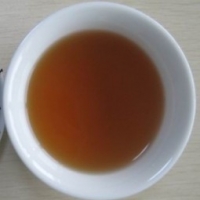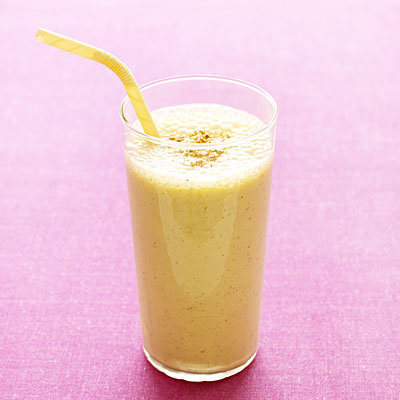Lose Weight > Weight Loss Tips > Weight Loss Articles > Hoping to Lose Weight? Consider Cutting Sodium from Your Diet
Hoping to Lose Weight? Consider Cutting Sodium from Your Diet
We almost automatically reach for the salt shaker when eating fresh tomatoes, corn on the cob, hamburgers or scrambled eggs, but are we sabotaging our weight loss efforts?
You may think that salt and sodium chloride are the same thing but they are not. Table salt consists of 40 percent sodium so if you add salt to food, you increase the sodium content by 40 percent of the salt added. We enhance the flavor of our food with salt and manufacturers almost always add it to food for the same purpose.
Seventy-seven percent of the sodium we consume is from commercially prepared or processed foods. Another 11 percent comes from salt or condiments containing sodium to our foods.
The good news is that salt has no calories, however consuming too much salt will cause your body to retain water. So while you may look or feel puffy and bloated, you haven't gained any fat. However, salt is not harmless since it can lead to or exacerbate high blood pressure.
Fast food is shockingly high in salt because is an inexpensive way for a company to add flavor to their foods, while also preserving the food to some degree.
If you severely decrease your salt intake, you may lose weight but what you may be losing is water weight. A crash diet may give you short term results, but if you resume your prior salt consumption, you could regain fluid. Keep in mind that a certain amount of sodium is crucial for the human body to function properly.
Moderation is the key with salt, although certain health conditions such as high blood pressure may demand that you eliminate as much salt and sodium from your diet as possible. The recommended upper limit for a healthy adult is 2,300 milligrams of sodium per day or about 1 teaspoon of table salt. In contrast, 1,500 milligrams might be allowed for someone with high blood pressure.
Decreasing your sodium consumption is possible by replacing processed foods with fresh fruits and vegetables eaten raw, lean meats cooked without salty sauces and fish and grains prepared with seasonings such as Mrs. Dash. You must be alert to the information on labels; you may often be surprised to read the sodium content in everyday foods. Reducing sodium consumption requires diligence to be aware of what you are consuming and looking for healthier alternatives.
You may think that salt and sodium chloride are the same thing but they are not. Table salt consists of 40 percent sodium so if you add salt to food, you increase the sodium content by 40 percent of the salt added. We enhance the flavor of our food with salt and manufacturers almost always add it to food for the same purpose.
Seventy-seven percent of the sodium we consume is from commercially prepared or processed foods. Another 11 percent comes from salt or condiments containing sodium to our foods.
The good news is that salt has no calories, however consuming too much salt will cause your body to retain water. So while you may look or feel puffy and bloated, you haven't gained any fat. However, salt is not harmless since it can lead to or exacerbate high blood pressure.
Fast food is shockingly high in salt because is an inexpensive way for a company to add flavor to their foods, while also preserving the food to some degree.
If you severely decrease your salt intake, you may lose weight but what you may be losing is water weight. A crash diet may give you short term results, but if you resume your prior salt consumption, you could regain fluid. Keep in mind that a certain amount of sodium is crucial for the human body to function properly.
Moderation is the key with salt, although certain health conditions such as high blood pressure may demand that you eliminate as much salt and sodium from your diet as possible. The recommended upper limit for a healthy adult is 2,300 milligrams of sodium per day or about 1 teaspoon of table salt. In contrast, 1,500 milligrams might be allowed for someone with high blood pressure.
Decreasing your sodium consumption is possible by replacing processed foods with fresh fruits and vegetables eaten raw, lean meats cooked without salty sauces and fish and grains prepared with seasonings such as Mrs. Dash. You must be alert to the information on labels; you may often be surprised to read the sodium content in everyday foods. Reducing sodium consumption requires diligence to be aware of what you are consuming and looking for healthier alternatives.
Related Articles
-
Are The Barriers Of Dieting Psychological Or Physical?
Part 1.On the last count the word diet produced in excess of 157 milli
-
Keeping to Your Weight Loss Goals
So you want to lose weight? The issue is not can you, for you can. The
-
Gastric Bypass: Surgical Remedy of Overweight
Obesity is becoming a serious problem worldwide. The World Health Org
-
Fat Burning Furnace - Extreme Weight Loss How to Do It The Right Way!
Learn How to Lose 26 Pounds in 7 Weeks! Extreme Weight Loss How to Do
-
Foods that Burn Fat
Is it really possible to find foods that burn fat? Its certainly an ap
-
Natural Ways To Get Slim
I know that there are women and even men out there that have tried and
- DON'T MISS
- You Cant Lose Weight - Is It Genetic?
- Bariatric Surgery, Diabetes and What Surgery to Choose
- Healthy Weight Loss Is A Key To Reduce Fat
- The Diet Solution Torrent
- Don't Continue Weight Plans That Don't Work! See What You Must Change In Your Dieting & Exercise Routine To Really Succeed! - Ever Loss
- What precisely behind Jennifer Hudson Weight Loss Story of Success
- The Glycemic Index Diet
- No Magic Bullet For Fat Loss
- What To Know Before You Buy Cheap HCG
- Herbal Dietary Supplement




